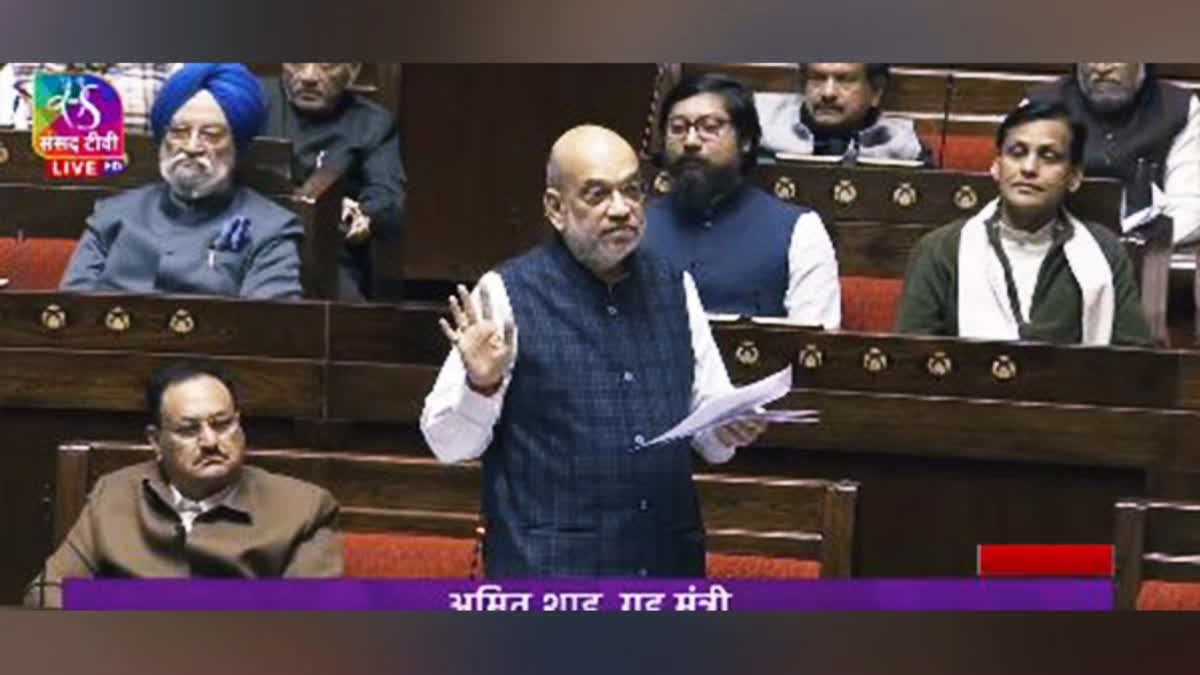New Delhi: Home Minister Amit Shah on Wednesday said the three bills to replace the colonial-era criminal laws seek to bring comprehensive changes to the criminal justice system with a human-centric approach and a focus on imparting justice instead of imposing penalties. Replying to a debate on the Bharatiya Nyaya (Second) Sanhita, Bharatiya Nagarik Suraksha (Second) Sanhita and the Bharatiya Sakshya (Second) Bill in the Lok Sabha, Shah said the three proposed laws also have a clear definition of terrorism, scrap sedition as a crime and introduce a new section titled "offenses against the state".
He said the three bills were drafted after comprehensive consultations and that he had gone through every comma and full stop of the draft legislations before bringing them before the House for approval. He said the existing criminal laws Indian Penal Code (IPC), Indian Evidence Act and the Code of Criminal Procedure (CrPC) - were reflective of the colonial mindset with the intention to punish and not impart justice.
"The three news bills seek to establish a justice system based on Indian thinking... Three proposed criminal laws will free people from colonial mindset and its symbols," Shah said. The Bharatiya Nyaya Sanhita seeks to replace the Indian Penal Code-1860, the Bharatiya Nagarik Suraksha Sanhita will replace the CrPC of 1973 and the Bharatiya Sakshya Bill will replace the Indian Evidence Act of 1872. "For the first time, the criminal justice system will have the human touch. Till we repeal these old laws, we are still following laws made by the UK government. We still use English words like Her Majesty, British Kingdom, the crown, barrister, ruler after 75 years of independence," Shah said.
